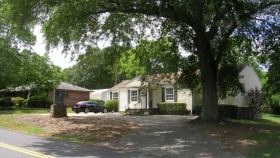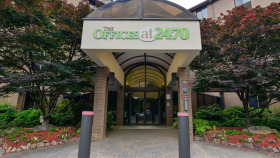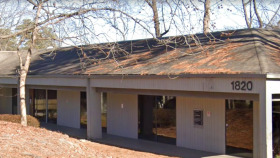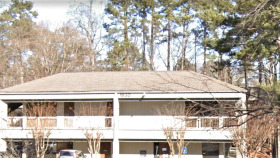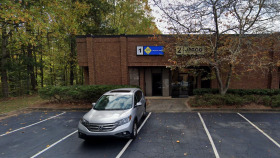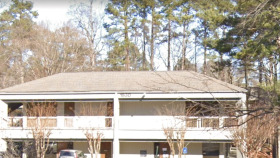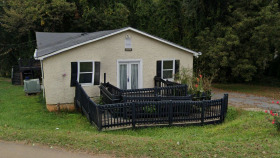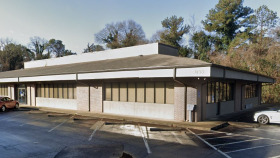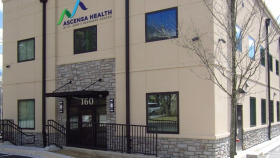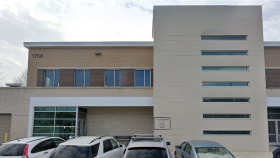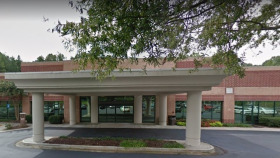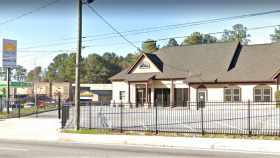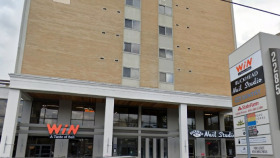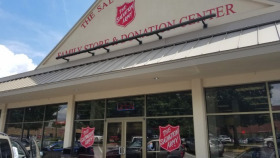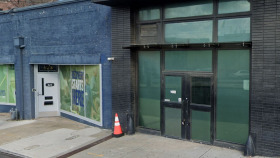Substance Abuse and Addiction Statistics in Smyrna, GA
Recent substance abuse statistics for Smyrna and Cobb County include:1, 2, 3
Roughly 77% of individuals who died from opioid overdoses in 2020 identified as white, and approximately 20% identified as Black.
Approximately 62% of county residents who died from opioid overdoses in 2020 were male.
Levels of Drug and Alcohol Rehab
Drug and alcohol rehab settings vary in intensiveness and structure. Here’s more about the levels of care:
Detox
When you receive drug detox, a team of doctors and nurses monitor your withdrawal symptoms while the drug or alcohol leaves your body, ensuring your safety and comfort. This usually occurs first before starting formal addiction treatment services.
Residential or Inpatient
You reside at the treatment center for 30 days, 60 days, or 90 days, while receiving a myriad of treatment modalities, such as individual therapy, group counseling, family therapy, support groups, experiential therapies, and addiction treatment medications.
Partial Hospitalization Programs (PHPs)
A step down from inpatient rehab, you live at home while attending between 20 and 30 hours of counseling per week.
Intensive Outpatient Programs (IOPs)
Less intensive than a PHP, IOPs involve living at home while attending between nine and 20 hours of therapy per week.
Standard Outpatient
Standard outpatient involves just a few hours of therapy per week and may not be the best option for someone who doesn’t have a strong support system or who is struggling with a severe addiction. It may be better used as a step-down option after completing an inpatient or PHP.
Aftercare
Once you complete your addiction treatment program, you’ll want to make sure to continue receiving ongoing support to prevent relapse. This can look like joining AA, NA, or SMART Recovery, or attending ongoing therapy. Some people transition into sober living homes before returning home.
How to Pay for Drug Rehab in Smyrna, Georgia
There are many ways to finance your addiction treatment to reduce the financial burden.
Private Insurance
Health insurance providers are required to cover substance abuse treatment and mental health services to the extent that they do surgical and medical benefits. If you have private insurance, you can likely get partial or full coverage for drug rehab. Contact your provider for more details.
Georgia Medicaid: Peach State Health Plan
Georgia’s Medicaid, or Peach State Health Plan, provides health insurance coverage for low-income Georgia residents. Medicaid covers drug and alcohol rehab, although you will need to find a rehab that accepts Medicaid.
Medicare
Georgia Medicare covers Georgia residents aged 65 and older as well as those with certain medical conditions and disabilities. It covers addiction treatment services, like medication-assisted treatment, outpatient rehab, and inpatient hospitalization. Like Medicaid, you’ll need to find a drug rehab that accepts this form of payment.
TRICARE in Georgia
TRICARE in Georgia provides health insurance coverage for veterans, active-duty military personnel, and their families. Many drug and alcohol rehabs accept TRICARE.
Sliding Scale Rehabs
A sliding scale rehab only charges you what you can reasonably pay based on your income and financial situation, greatly reducing the cost of treatment and increasing access.
IHS-Funded Drug Rehabs
The Indian Health Services funds addiction treatment programs that provide free care to Indigenous people. Most of these IHS-funded rehabs are on reservations, although a few are elsewhere.
Traveling to and Within Smyrna, GA
Will you be traveling to an alcohol or drug rehab in Smyrna for treatment? Are you planning to visit a loved one who’s working through recovery in the city? Either way, here’s some information that can help you plan your trip:
- Hartsfield-Jackson Atlanta International Airport is your best option to fly into the area. You can get from the airport to Smyrna by car in about 30-40 minutes.
- Several major transit routes are easily accessible from Smyrna, including Interstates 75, 25, and 285, U.S. Route 41, and State Routes 5, 280, and 360.
- The city of Smyrna doesn’t have many lodging options, but you’ll have several national-chain hotels and motels to choose from if you’re willing to stay a few miles east of the city,
- The Cobb Community Transit (CCT) bus system has several fixed bus routes that can take you throughout the city and to nearby Atlanta’s rapid-rail network. Two major railways also service Smyrna.
- Smyrna is home to nearly two dozen public parks where you can stroll, hike, or bike to your heart’s content.
- Interesting outdoor sites include the Jonquil City Historical Trail, Chattahoochee River National Recreation Area, Kennesaw Mountain National Battlefield Park, and the Silver Comet Trail.
- Popular attractions in Smyrna and the surrounding areas include the Smyrna History Museum, the Anne Frank Exhibit, the Georgia Aquarium, Zoo Atlanta, the High Museum of Art, and the National Center for Civil and Human Rights.
Georgia Drug and Alcohol Laws
Here are some relevant drug and alcohol-related laws in Georgia:1
The Mental Health Parity and Addiction Equity Act of 2008: This law requires insurance providers to cover drug rehab to the same extent they cover other medical treatments, increasing access to addiction treatment.
Georgia Naloxone Access Law: In Georgia, you can receive a prescription for naloxone (Narcan) if you know someone who is at risk of an overdose. If you are at risk of an opioid overdose, you can also receive naloxone from a pharmacist without a prescription
The Georgia 911 Medical Amnesty Law: This Georgia overdose law provides limited legal immunity to those who call 911 to seek help for someone experiencing an overdose, meaning they won’t get prosecuted for drug possession.
Resources
- Centers for Disease Control and Prevention, National Center for Health Statistics. CDC Wonder Online Database. (2021). Underlying Cause of Death, 1999-2020 Results, Deaths occurring through 2020.
- Georgia Department of Public Health. (2020). Opioid Overdose Surveillance Preliminary County Report, Georgia, 2020.
- Georgia Department of Public Health. (2022). OASIS Online analytical Statistical Information Drug Overdoses — Mortality Web Query Tool.


